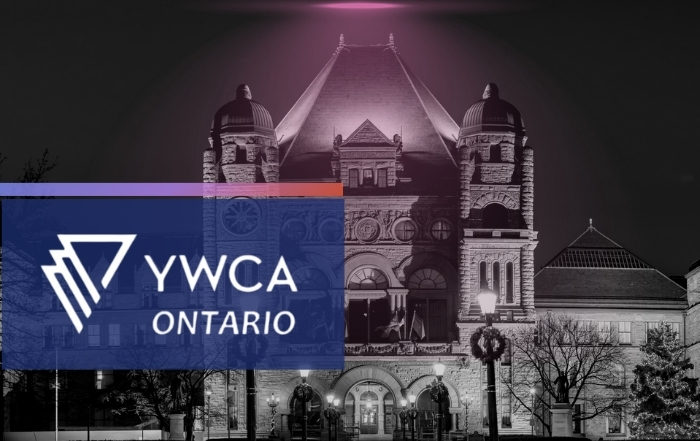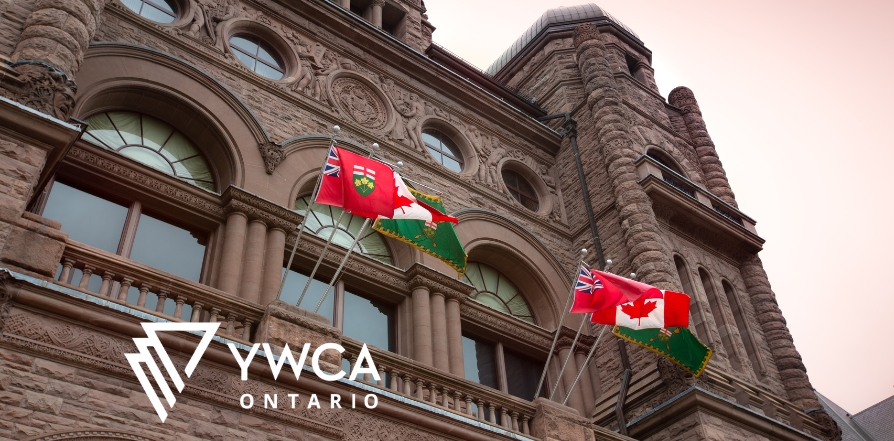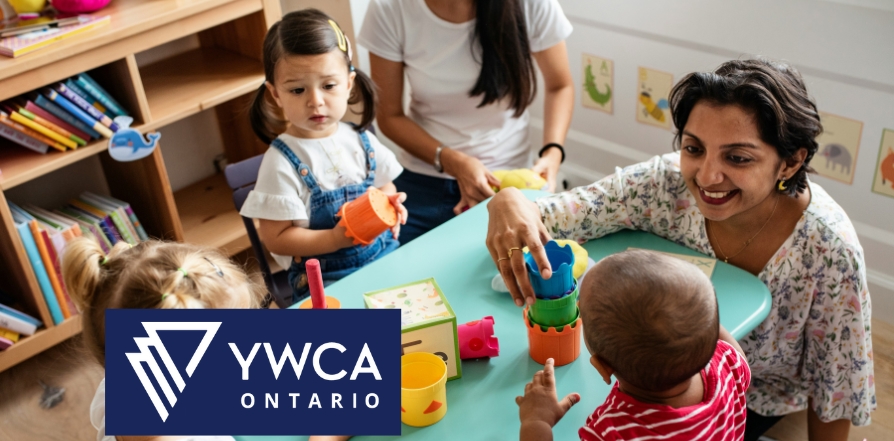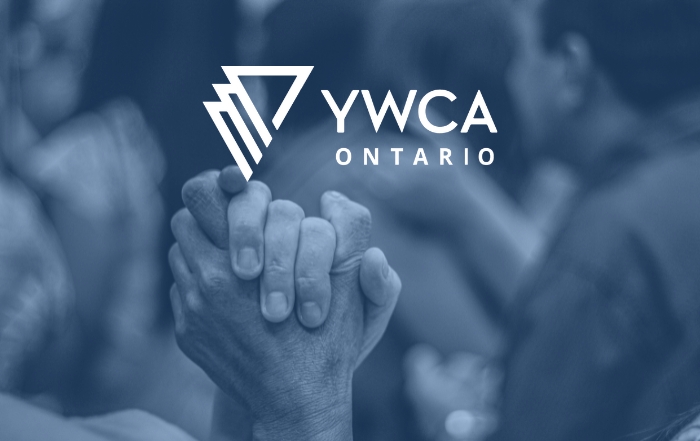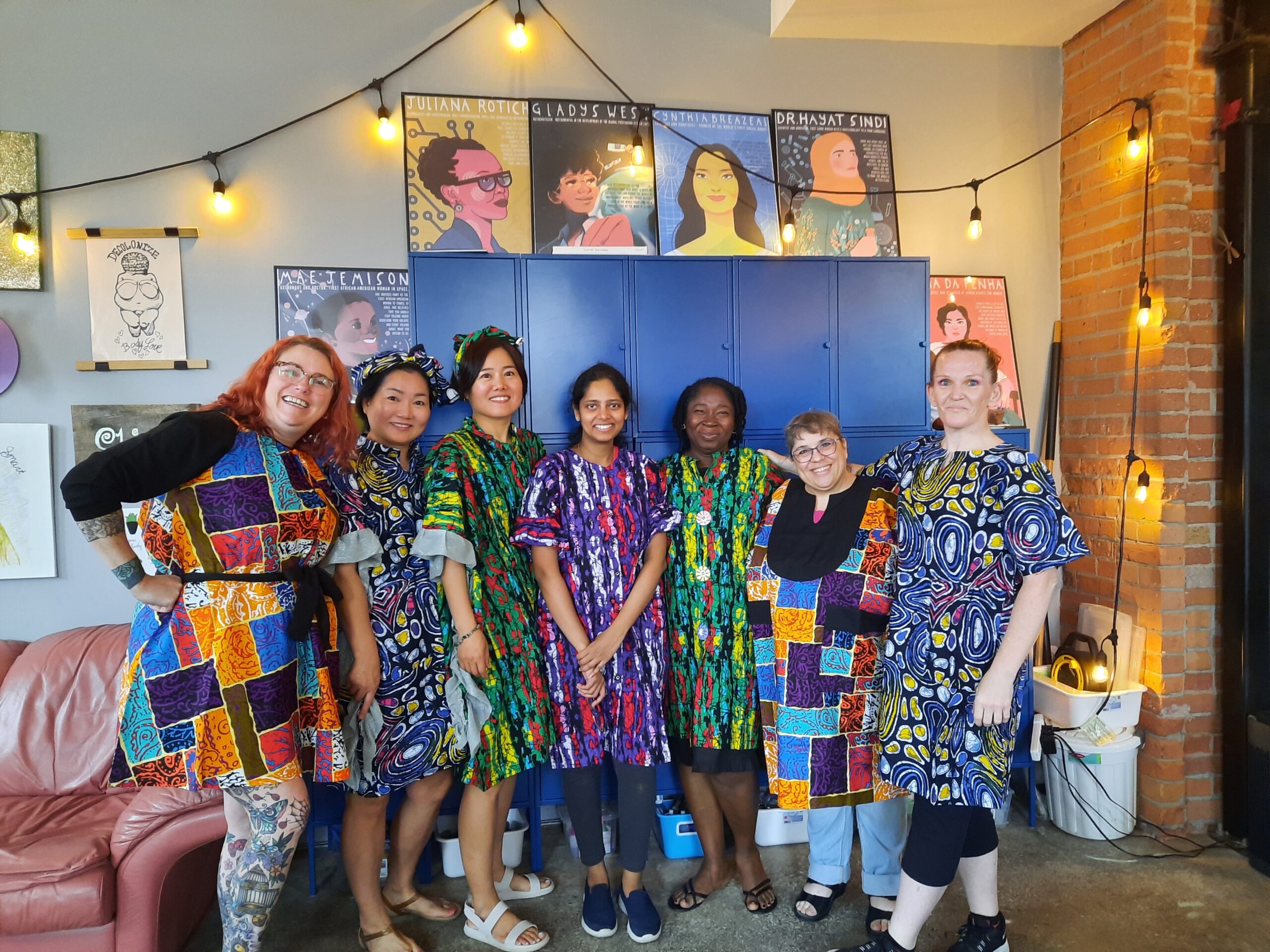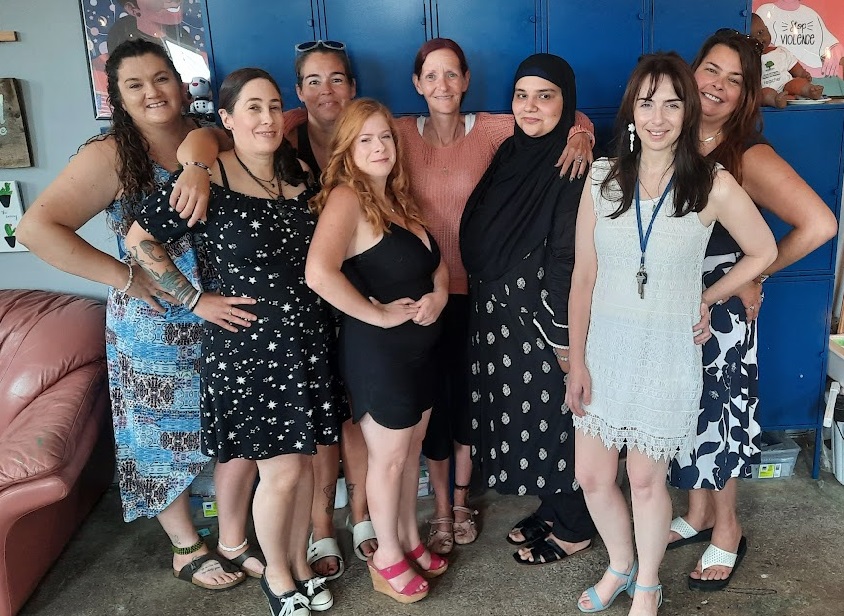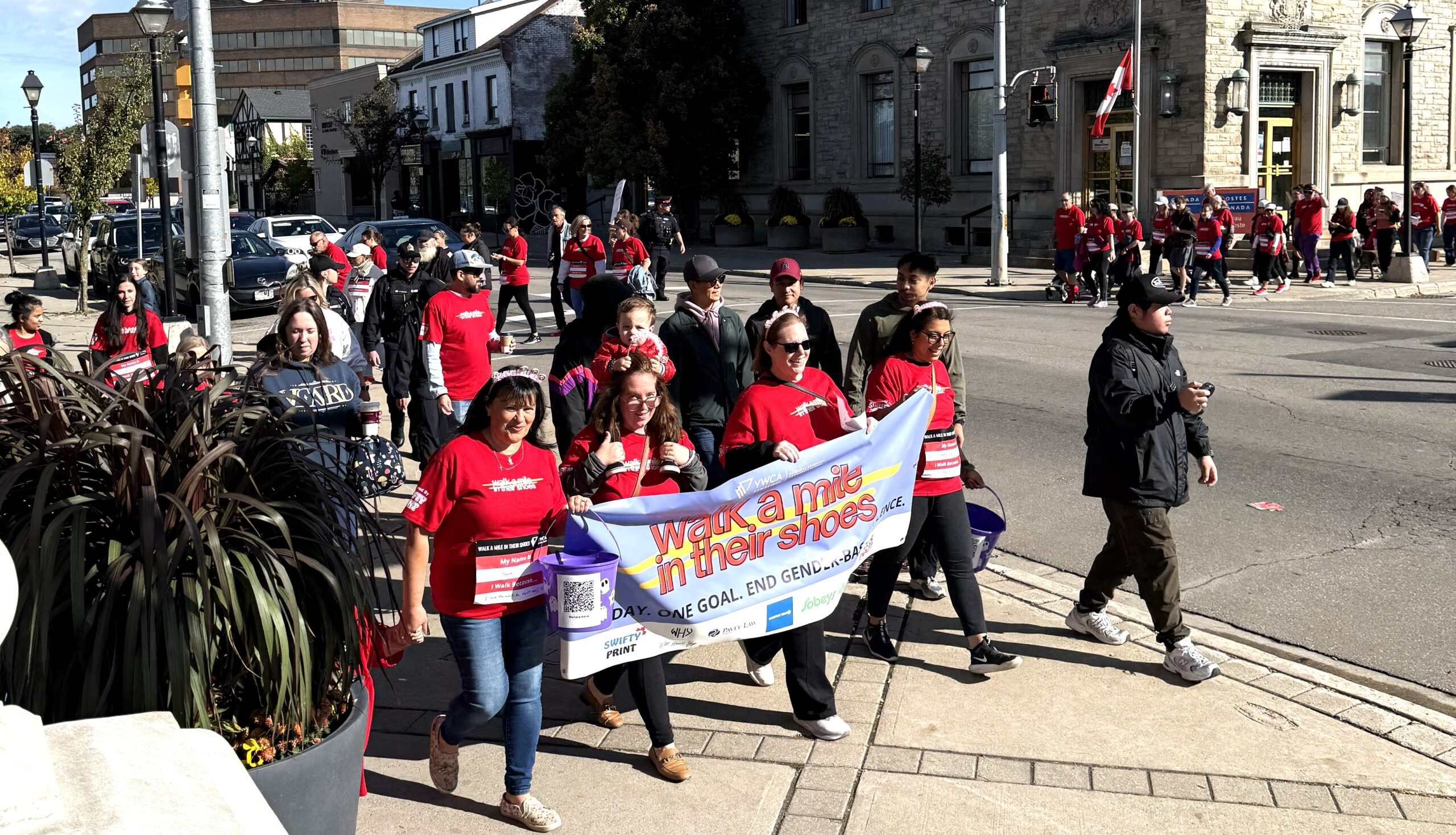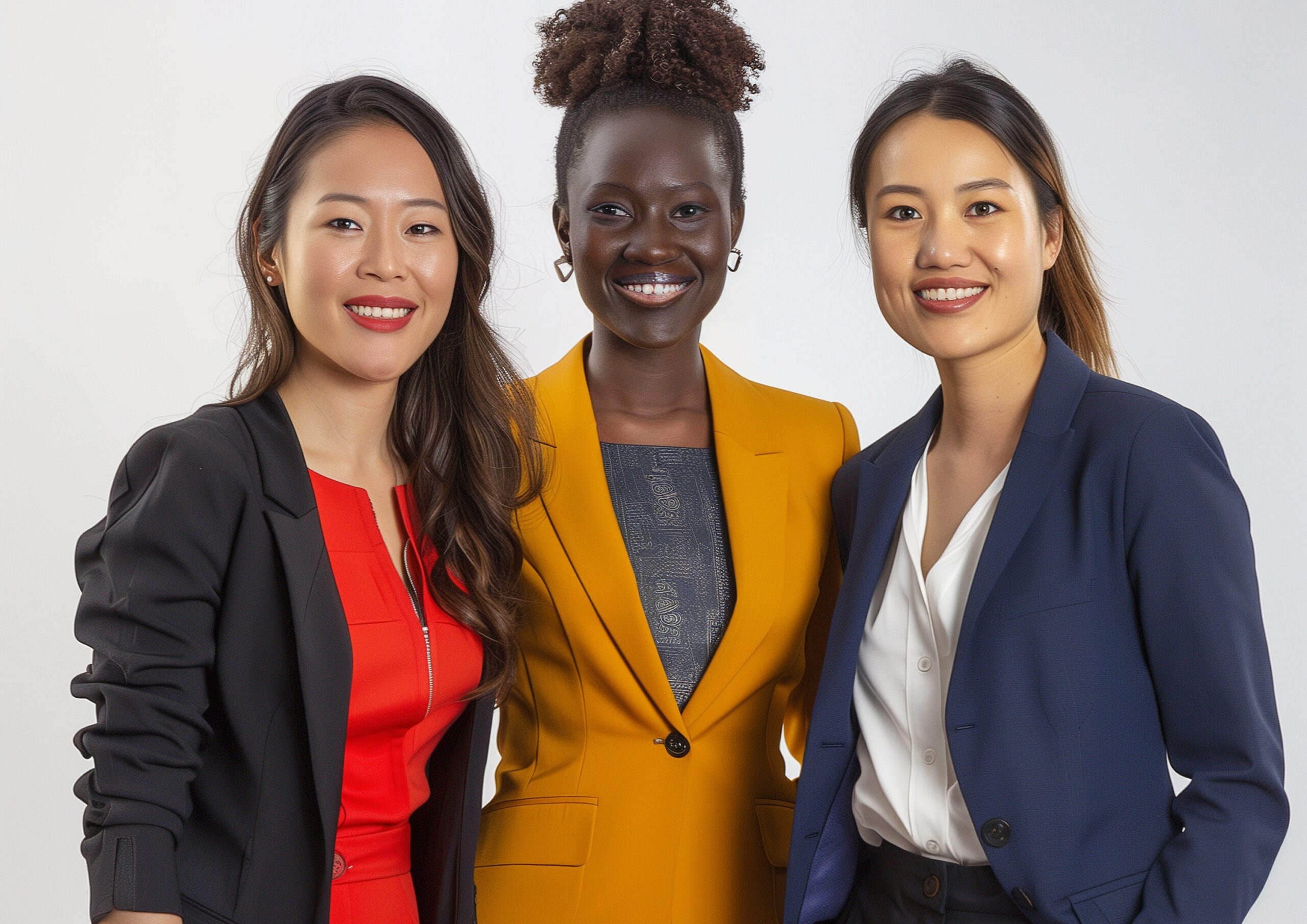A Week at the 68th United Nations Commission on the Status of Women
Last month, YWCA Cambridge Director of Communications and Advocacy, Roz Gunn, was among the YWCA Canada delegation to the 68th Commission on the Status of Women (UNCSW 68) at the United Nations in New York City. The priority theme around which the Commission as well as side and parallel events centred this year was “accelerating the achievement of gender equality and the empowerment of all women and girls by addressing poverty and strengthening institutions and financing with a gender perspective.”
Below are some reflections from Roz following her time at UNCSW 68.
It was an incredible privilege and honour to be able to attend UNCSW 68 in New York City in March. Having never previously attended, I didn’t know what to expect or what I would even get from the experience. The whole week was filled with moments of being completely overwhelmed – in a good way. I was overwhelmed by the sheer volume of people bustling through the halls of the UN, by the number of countries, languages and organizations represented in a given space, and by the constant flow of information and ideas among delegates and other attendees. Perhaps most overwhelming was being in a place where literally thousands of individuals have come from every corner of the world to talk about gender equity all day, every day for the two-week affair.
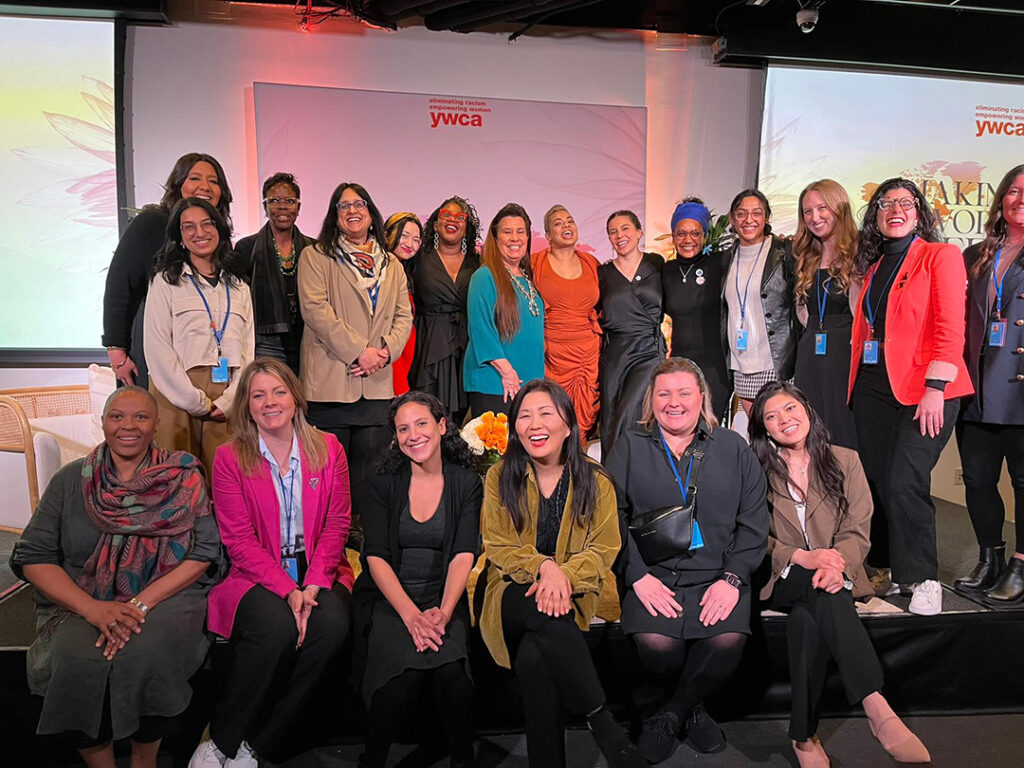
The YWCA USA delegation graciously hosted the YWCA Canada delegation for a fireside chat and reception.
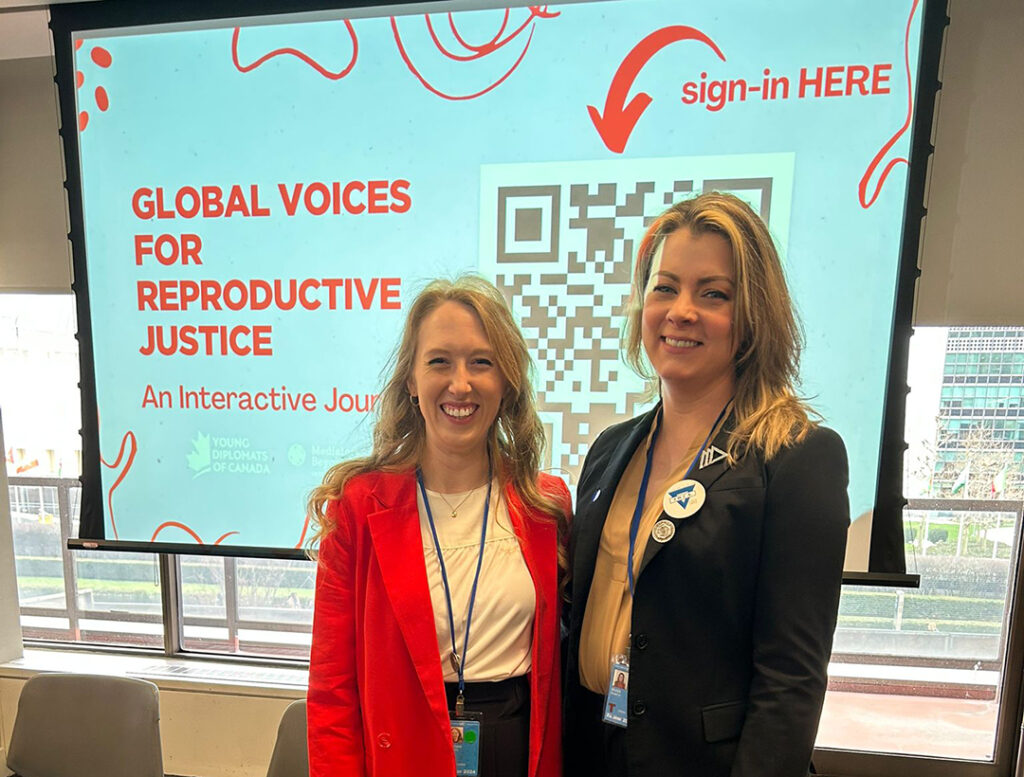
There were dozens of CSW and parallel events taking place each day, topics of which ranged from financing gender equity, to reproductive justice, from understanding and responding to tech-facilitated abuse to how advocates have successfully used international legal frameworks like the Convention on the Elimination of All forms of Discrimination against Women (CEDAW) to advance policy change locally.
One of the key takeaways from my time at UNCSW 68 was the importance of recognizing that while our work at YWCA Cambridge may be local, the lessons and experiences shared by other nonprofits and advocates across the globe can significantly inform and enhance our efforts. Here are some of the more salient concepts that resonated deeply with me that I’m eager to incorporate into the work we do at YWCA Cambridge:
Feminist Financing and Economic Justice
The discussions at UNCSW 68 shed light on the systemic issues perpetuated by financial institutions such as the International Monetary Fund (IMF) and the World Bank (WB). Delegates delved into topics like the impact of IMF and WB policies on countries like the Philippines, where conditions attached to loans often prioritize profit over people and perpetuate environmental degradation. It became clear that feminist economic justice requires a reformulation of fiscal policies, redistributive taxation, and a decolonization of neoliberal economics. After all, the systems our world, our nations, our province and municipalities function within are just that, systems. They had to be built, which means they can be rebuilt or entirely replaced by systems that better meet the needs of everyone and not only those who hold the power.
The need for a feminist reframing of financing and economic justice applies at every level of governance, from how municipalities fund things like public transportation to access to reproductive health care funded by the province, to how the Federal government allocates funding to address the housing crisis which is disproportionately impacting women and children.
Gender-Based Violence (GBV) and Economic Violence
Panels addressing GBV highlighted its devastating impact on women’s economic well-being, with statistics showing that IPV can cost up to 3.7% of GDP. Recognizing GBV as both a cause and consequence of economic inequality underscores the urgency of implementing comprehensive measures to combat it, including ratifying conventions such as the Council of Europe Convention on preventing and combating violence against women and domestic violence (known by its much briefer title as the “Istanbul Convention”) and enacting policies that support survivors.
While a number of nations are doing far more to address the epidemic of GBV, I was reminded of the strides we’re taking here in Canada, with intimate partner violence (IPV) and GBV being declared by governments at all levels – and almost included among them is the Province of Ontario with Bill 173: Intimate Partner Violence Epidemic Act having recently passed the second reading. These declarations are important because they signal governments are recognizing the sheer magnitude of the crisis. They provide the justification for increasing investments in preventing and addressing IPV and GBV and also a reimagining of how we do all policy.
Localizing Global Initiatives
The importance of localizing global human rights frameworks like CEDAW emerged as a recurring theme throughout the dozens and dozens of panel discussions and sessions. While international frameworks provide essential guidelines, their effectiveness hinges on meaningful implementation at the grassroots level. Strengthening local capacity to understand and apply these frameworks is essential for holding governments accountable and driving tangible change.
Just like the declaration by governments here in Canada provide the basis for advocating for tangible policy change, Canada’s being a signatory on international legal frameworks like CEDAW provides the case for advocates to point out the gaps between their stated commitments and how policies need to change to actually meet those commitments.
Women’s Participation in Peacebuilding and in Decision-Making
Ensuring women’s meaningful participation in peace processes emerged as a crucial strategy for conflict prevention and resolution. In a side event session entitled “Protecting Women’s Right to Participate,” Ambassador for Gender Equality from Australia, Stephanie Copus-Campbell reflected on the numerous studies that have shown that including women in peace negotiations increases the likelihood of sustainable peace agreements. Yet, women remain largely left out of these negotiations. Empowering women as agents of change in peacebuilding efforts is not only a matter of justice but also a pragmatic approach to building more resilient and inclusive societies.
The same goes for women in decision-making spaces more generally. Women’s absence – and often outright exclusion – from decision making spaces, like in higher orders of government, but even more locally, means the continuation of systems and processes that aren’t built with the specific experiences and needs of women, girls and gender diverse individuals in mind. It’s a pretty simple explanation for why we see a persistent pay gap here in Canada and elsewhere, why women-dominated work like care work is consistently undervalued, why GBV and IPV so predictably lead to economic devastation for women and children and yet, our policies haven’t caught up to adequately respond and protect survivors.
My experience at UNCSW 68 reinforced the interconnectedness of women’s struggles globally and the imperative of collective action to effect meaningful change. As I reflect back on that whirlwind week, I am deeply inspired and equipped with a renewed sense of purpose to integrate these learnings into YWCA’s advocacy efforts. By leveraging the insights gained from this international gathering, we can better empower women, challenge systemic injustices, and advance towards a more equitable and inclusive world for all.
The United Nations Commission on the Status of Women (UNCSW) is a global intergovernmental platform established in 1946 to promote gender equality and women’s empowerment, while monitoring global progress toward gender equality through the review of global commitments such as the Beijing Declaration and Platform for Action. The largest UN gathering on gender
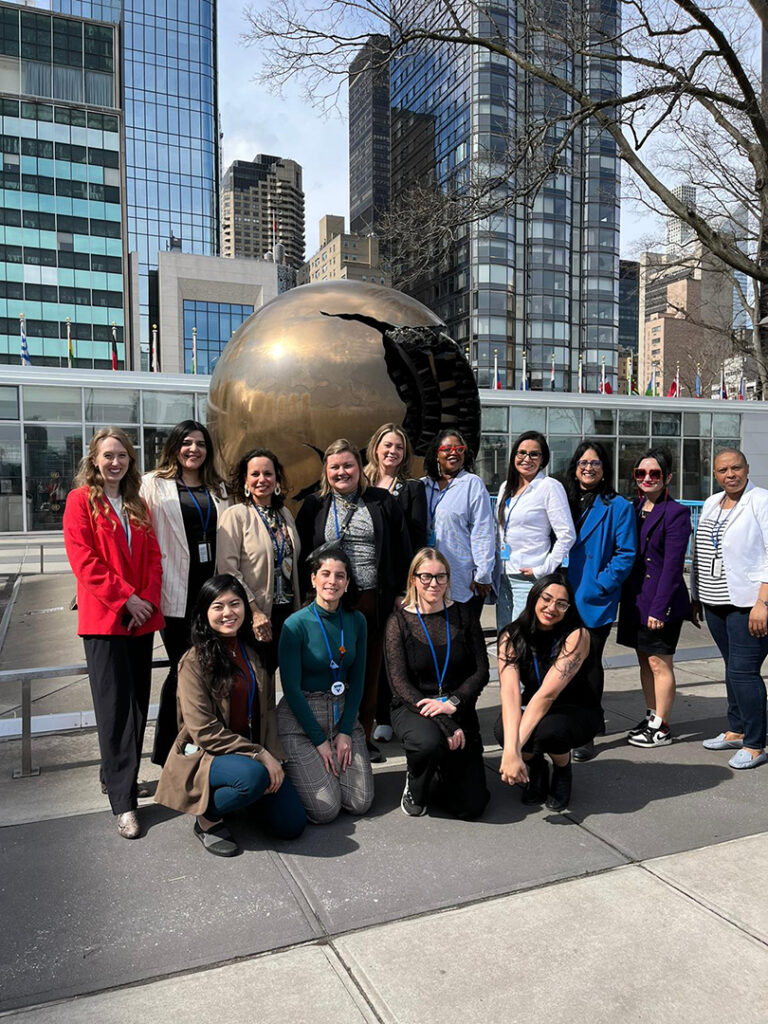
Most of the YWCA Canada delegation stands in front of the iconic globe outside of the United Nations.
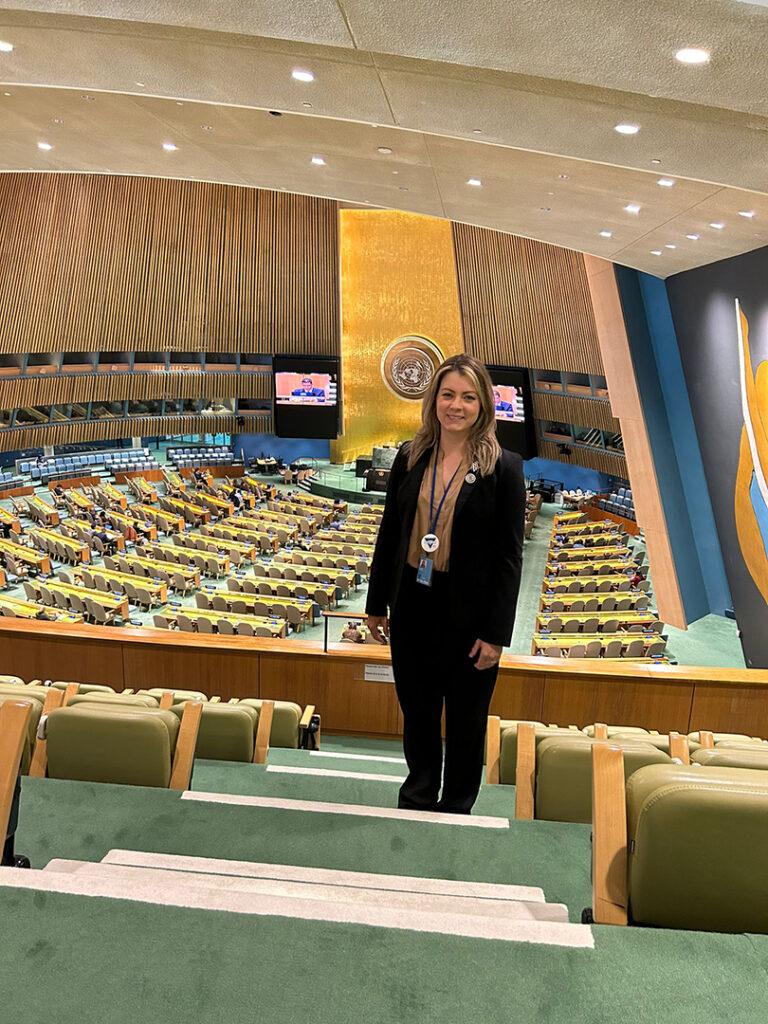
Roz stands in the UN General Assembly


